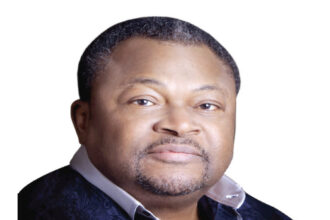The European Union (EU) is an economic and political partnership involving 28 European countries. It began after World War II to foster economic co-operation among member countries, with the idea that countries which trade together were more likely to avoid going to war with each other. The countries include Austria, Belgium, Croatia, Finland, France, Germany, Poland, Portugal, Spain, Sweden, United Kingdom, among others. Ever since its existence, it has grown to become a single market allowing goods and people to move around, as if the member states were one country. It has its own single currency, the euro, which is used by 19 of the member countries; its own well organised parliament and it now sets rules in a wide range of areas – including on the environment, consumers right and transport.
Sometimes in 2017, the United Kingdom resolved to pull out of the European Union, this term was referred to Brexit. Brexit was activated by the conduct of first referendum. England voted for Brexit by 53.4% to 46.6%. Wales also voted for Brexit with Leave getting 52.5% of the vote and Remain 47.5%. Scotland and Northern Ireland both backed staying in the EU. Scotland backed Remain by 62% to 38%, while 55.8% in Northern Ireland voted Remain and 44.2% Leave.
Death of senior prefect in Ondo: Teacher submits self to Police
Theresa May triggered this process of Brexit on 29 March, 2017, meaning that the UK was scheduled to leave at 11pm UK time on Friday, 29 March 2019. That did not happen. As the case is right now, the UK is having a rethink, since all the options tendered by Theresa May have been exhausted without results. At first, it appeared like May had bowed to the pressures from the opposition not to welcome any form of extension. However, out of the blues, there came a call for another referendum. From the start of the Brexit campaign, there had been doubts among pro-Brexit campaigners whether the campaign would ever be actualised. One of those sceptics was Britain’s pro-Brexit trade minister Liam Fox. In my opinion, it would not be a surprise if Brexit is abandoned or suspended, because ever since the campaign started, the European Court of Justice had created a window for a “soft landing” for the United Kingdom if it decided to strike out the Brexit campaign and continue its union with the EU.
These windows include the authority to cancel the Article 50 Brexit process without the permission of the other 27 EU members, and remain a member of the EU on its existing terms, provided the decision followed a democratic process. And the world should be prepared to likely see a referendum striking out the Brexit campaign finally. The options handed down by the EU to the UK if Brexit were to be actualised seem too hard to swallow. The options are strategic; they are hard-to-cross barriers erected to compel the UK to stay and this seems to be playing out well for the EU, as the UK is yet to find its footing at the moment. On the part of the EU, it knows too well that the pulling out of a strong member like the UK will send a death blow to it, especially when UK begins to experience dividends of breaking away from the EU. And this may trigger the guts of other members willing to pull out and in no time, the EU would have reached a dead end.
The question leaders and economic juggernauts in Africa should be asking now is, why is it so hard for the UK and the EU to divorce? And why is their union causing so much controversy? Why is such a country that is economically stable and highly industrialised finding it so hard to be independent from a community it willingly joined? And why is the UK not ready to break away totally, without any dots connecting it to the EU? In short, is Brexit really meant to be actualised? These questions lead perceptive observers to the inescapable conclusion that the benefits enjoyed by both parties are immense. The lesson here for African countries is that without a solid, well organised union of sovereign states coming together to form a strong force with common economic and social goals just like EU, the African continent will continue to struggle, surviving by the dictates of the imperial powers.
There was such an idea floated by Mohammar Ghadaffi which never come to pass. But there are platforms already available to actualise the unity of African countries, including the Economic Community of West African States (ECOWAS) and the African Union (AU). ECOWAS over the years has expressed the willingness to have a unified currency. This has however never been actualised. And we may continue to wonder why countries in this part of the world seem to be facing retrogression, bogged down by corruption and mismanagement of resources. I believe that creating an avenue for a single market, free trade zone, a unified currency and trade policies that will promote the development and growth of member states in the 21st century is the key to making countries in Africa to level up with the developed countries.
Folaranmi is a staff of Nigerian Tribune








